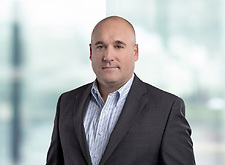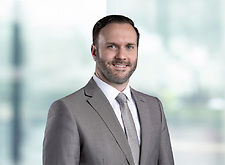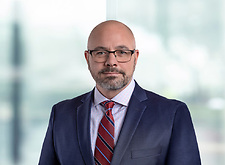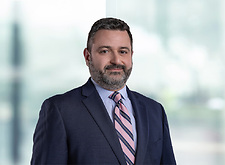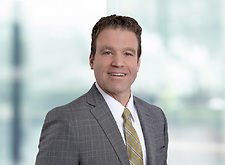New York Appeals Court Changes Defamation Standard for False Accusations of Homosexuality
Breaking with decades of precedent, a New York appeals court has ruled that it is no longer “defamation per se” to falsely claim that someone is homosexual. When a false statement is considered defamation per se, the victims are not required to provide proof that they were financially damaged by the statement, based on the principle that some statements are so scandalous that the damages can be presumed. For decades, New York courts had applied this standard to false statements regarding homosexuality, but gradual transformations in the law and cultural attitudes towards homosexuality have led the court to believe that this standard is no longer needed.
In Laguerre v Maurice, which was decided by the Appellate Division, Second Department during the holidays, a church pastor was accused of telling the congregation that one of the church’s elders was a homosexual who disrespected the church by viewing gay pornography on the church’s computer. He allegedly did so to influence a vote to relieve the elder of his responsibilities at the church and terminate his membership. The elder sued the pastor and the church to recover damages for defamation per se. The pastor and church moved to dismiss the case, arguing, among other things, that falsely ascribing homosexuality to a person no longer constituted defamation per se, and that the elder had failed to allege any special damages. The pastor and church also raised an unrelated argument that the church lacked subject-matter jurisdiction to inquire into ecclesiastical proceedings, discipline, and church doctrine. The church and pastor also argued that the allegedly defamatory statements were made at a church membership meeting and therefore were protected by a common-interest privilege.
The trial court denied the motion to dismiss, holding that the plaintiff had sufficiently stated a claim to recover damages for defamation per se, and that the court was not interfering in a religious dispute, but was instead adjudicating a civil dispute involving a nonreligious, neutral legal issue.
On appeal, the Second Department agreed that the trial court had jurisdiction to resolve this dispute, as the member was not challenging his expulsion from the church, nor requesting reinstatement as a church elder. Moreover, the allegedly defamatory remarks at issue could be evaluated without reference to religious principles. The Second Department also rejected the church and pastor’s argument that the pastor’s statements were protected by privilege.
But the appellate court reversed the trial court’s ruling on defamation per se, and overturned its prior precedent set forth in Matherson v. Marchello, 100 A.D.2d 233, 473 N.Y.S.2d 998 (2d Dep’t 1984). In doing so, the Second Department joined the Third Department in concluding that prior decisions applying the defamation per se standard to false claims of homosexuality were no longer valid law and were inconsistent with current public policy.
The Second Department relied on the “profound and notable transformation of cultural attitudes and governmental protective laws” regarding homosexuality, including the decriminalization of intimate homosexual conduct, recognition of same-sex marriage, and the expansion of the New York Human Rights Law to prohibit discrimination based on sexual orientation in employment, public accommodations, credit, education, and housing. In light of this transformation, the court concluded the false imputation of homosexuality could no longer constitute defamation per se. Since the church elder’s allegations did not fit within any other categories of defamation per se (i.e., accusing someone of a serious crime, injuring their professional reputation, alleging they have a loathsome disease, or accusing them of unchastity), the member was required to plead financial damages from the alleged defamation, which he failed to do.
The Takeaway
At least two New York appeals courts now require a person to plead special damages when filing a defamation lawsuit against someone who falsely accuses them of homosexuality. Those courts will no longer presume such damages under the doctrine of defamation per se, because of the veritable sea change in social attitudes about homosexuality over the past two decades. In its decision, the Laguerre court highlights key legal decisions and state legislative enactments tracking this evolution, including, most notably, the U.S. Supreme Court’s decision in Obergefell v Hodges, 576 U.S. 644, 675 (2015), which recognized the fundamental right of same-sex couples to marry in all 50 states.
It is possible that, in the coming years, New York courts may reconsider whether other labels that no longer carry certain stigmas in the public realm are also entitled to a presumption of damages. But as long as such defamed persons adequately plead financial damages, their claims will survive a motion to dismiss.
For any question you have regarding if this recent decision impacts any of your organization’s activities, please contact Ryan Cummings (716.848.1665), Ryan Lucinski (716.848.1343) or Aaron Saykin (716.848.1345).
If you received this alert from a third party or from visiting our website, and would like to be added to our Media & First Amendment alert mailing list or any other of our mailing lists, please visit us HERE.
Featured
- Partner
- Partner
- Partner
- Partner
- Partner
- Partner
- Partner

